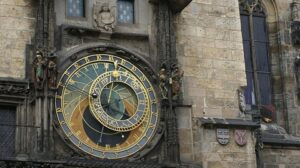Beyond the Zodiac: A Deep Dive into the Science of Horoscopes
Horoscopes have captivated human interest for centuries, guiding decisions and influencing lifestyles through the allure of celestial guidance. Beyond their cultural significance, a closer examination reveals a complex interplay between astrology, psychology, and science. This article dives into the foundations, methodologies, and implications of horoscopes, unearthing insights into their enduring appeal.
A Brief History of Astrology
Astrology, rooted in ancient civilizations, has evolved significantly. The Babylonians were among the first to develop a systematic approach to observing celestial bodies around the second millennium BCE. They created the Zodiac, a band of twelve signs, each corresponding to specific traits and destinies based on planetary alignments. Ancient Greeks further popularized these ideas, giving birth to the astrology we recognize today.
The Mechanics of Horoscopes
At the core of any horoscope lies the concept of natal charts, which are personalized diagrams marking the positions of planets at the time of one’s birth. These charts form the basis for astrological predictions and analyses. Here’s how it works:
-
Zodiac Signs: Each of the twelve signs (Aries, Taurus, Gemini, etc.) represents distinct personality traits and tendencies.
-
Planetary Influence: The positions of the sun, moon, and planets in relation to these signs influence an individual’s characteristics and life events.
- Aspects and Houses: The angles between planets (aspects) and the division of the natal chart into twelve houses contribute to the interpretation, providing detailed insights into various life areas, from career to relationships.
The Science Behind Astrology
While astrology holds a prominent place in popular culture, its scientific validity remains widely debated. Here, we examine both sides:
Proponents’ Perspective
Astrology enthusiasts argue that the correlation between planetary positions and human behavior is rooted in a complex web of energies and influences. They believe that:
-
Symbolic Resonance: Each sign and planet embodies innate characteristics, resonating with individuals born under those alignments.
- Cognitive Bias: The Forer Effect, or Barnum Effect, suggests that vague and general statements can resonate with many individuals, making horoscopes feel personalized.
Skeptics’ Viewpoint
Conversely, skeptics emphasize the lack of empirical evidence supporting astrology. Key arguments include:
-
Scientific Rigour: Multiple studies have failed to establish a statistical link between astrological signs and personality traits or life outcomes.
- Confirmation Bias: Many catch themselves remembering successful predictions while ignoring discrepancies, reinforcing belief despite the absence of scientific backing.
Psychological Aspects of Horoscopes
Despite the ongoing debate over their scientific foundations, horoscopes and astrology play a significant psychological role:
-
Coping Mechanism: Many individuals find comfort in horoscopes, using them to navigate life’s uncertainties and challenges.
-
Self-Reflection: Reading horoscopes can promote introspection, prompting people to consider their motivations, relationships, and personal growth.
- Community & Belonging: Astrology fosters a sense of community among believers, creating shared experiences around discussions of zodiac signs and compatibilities.
The Cultural Impact of Horoscopes
The cultural significance of horoscopes extends beyond individual belief systems into the fabric of societal interactions. Astrology has found its way into various mediums, including:
-
Media: Daily horoscopes appear in newspapers and online platforms, often influencing public perception and decision-making.
-
Fashion and Lifestyle: From zodiac-themed jewelry to compatible dating apps, astrology informs choices in various lifestyle sectors.
- Entertainment: Television shows and films often incorporate astrological themes, catering to audiences’ fascination with celestial influences.
Conclusion
Horoscopes encapsulate a rich tapestry of historical, cultural, and psychological dimensions. Despite the ongoing debate regarding their scientific legitimacy, their impact on human behavior and society is undeniable. As we continue to navigate a complex world, the allure of the Zodiac might just provide the guidance, community, and introspection many seek. Whether grounded in belief or viewed through a critical lens, horoscopes will likely remain an intriguing intersection of astrology and human experience for the foreseeable future.

























Add Comment